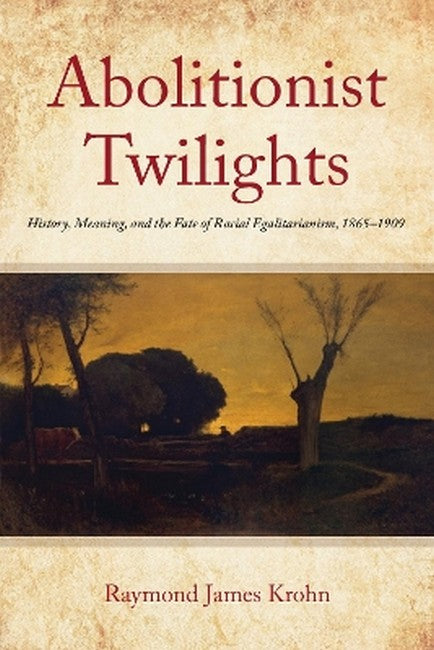Raymond James Krohn is an Assistant Professor of History at Boise State University. As a historian of the United States, he specializes in the eighteenth and nineteenth centuries, slavery and abolition, social movements, and political, intellectual, and cultural history.
Request Academic Copy
Please copy the ISBN for submitting review copy form
Description
Introduction: What Is Abolitionism Now? From the Disposition of the AASS to the Determinants of Abolitionist History 1 1 Antislavery Moderated: Samuel Joseph May and the Lessons of Respectable Reform 19 2 Antislavery Elevated: William Wells Brown and the Purpose of Black Activism 45 3 Antislavery Vindicated: Oliver Johnson and the Value of Abolitionism's Grand Old Party 72 4 Antislavery Sanctified: Parker Pillsbury and the Spirit of Abolitionism in the Fields 100 5 A Tale of Two Slaveries: Aaron Macy Powell and the Transfiguration of Abolitionism 125 6 Songs of Innocence and Experience: Thomas Wentworth Higginson and the Abdication of Abolitionism 154 7 What Was Antislavery For? From the Disbandment of the AASS to the Determination of Abolitionist Women 191 Coda: Complicated Legacies 219 Acknowledgments 221 Notes 225 Index 269
In the later decades of the nineteenth century, men and women who had spent their antebellum years as part of the abolitionist movement began to devote significant time reflecting on those critical years of the antislavery struggle. . . penning book-length memoirs, sometimes in multiple volumes. In his fascinating new book, Raymond James Krohn examines an array of such publications, providing a meticulous reading of the work of a collection of mostly white abolitionists and helping us to see what this memory work meant for the continuing struggle for Black rights in postbellum America.-- "Journal of the Civil War Era" Krohn's Abolitionist Twilights stands as a stark reminder to scholars to consider how the treacherous intersections of memory, nostalgia, and implicit bias often go unquestioned in well-traveled archives. It provides an impressive overview of the literary, autobiographical, and historical legacy of the antislavery movement, and highlights the necessity of further complicating the legacy of abolitionism.-- "Journal of the Gilded Age and Progressive Era" . . .Abolitionist Twilights addresses a multidimensional area of scholarship encompassing history, cultural studies, and diversity academia. Krohn's research should help other scholars continue to explore the enduring impacts and transformations of these historical narratives within modern US society.-- "H-Net Reviews" Abolitionist Twilights is a must read for intellectual historians of the Civil War era. Krohn provides an in depth analysis of the conceptual limitations that made white abolitionists problematic allies in the years following the war. His book also provides context in the longer narrative of allyship and its shortcomings in the quest for African-American civil rights.---John A. Casey, author of New Men: Reconstructing the Image of the Veteran in Late-Nineteenth-Century American Literature and Culture

